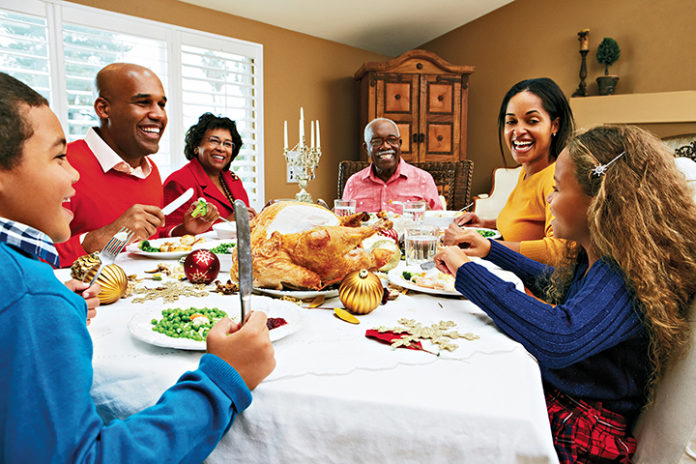It’s a time for cheer, for extravagant meals, for merrymaking with friends and family. But for some of us, the holidays can also be stressful, particularly if you’re caring for someone living with dementia.
It is possible to be a full-time caregiver and still partake in the celebrations. As you get ready to tackle the holiday season this year, remember to plan early, set realistic expectations and simplify your plans.
Here are 10 tips to make the holidays less stressful and more enjoyable for everyone:
- Do small family get-togethers instead of day-long events. This will minimize stress and feelings of being overwhelmed, especially if the person you’re caring for is in the later stages of dementia.
- Find a quiet area where the person can retreat and have someone keep them company.
- Choose familiar places for gatherings to help avoid confusion.
- Plan festivities on a day and time that suits the person with dementia.
- Check for potentially dangerous items such as decorations that look like candy or fruit.
- Decorate your home in stages so the changes are less jarring for the person with dementia.
- Involve the person with dementia in preparations by giving him or her tasks they can still do or enjoy, like making holiday cards or wrapping gifts.
- Prepare the person’s favourite meals, and keep in mind that too much rich food can cause them to become agitated.
- Do things that have meaning such as looking at old family photos or home movies, and singing favourite songs.
- Buy a thoughtful gift for the person. You can never predict how they’ll react so don’t be surprised if they’re less than enthusiastic.
It’s also a good idea to make a list of doctors or walk-in clinics and pharmacies that are open during the holidays in case of an emergency. And, if the person is on medication, make sure they have enough to get them through the break.
Make time for yourself
Don’t overdo it. It may be tempting to go all out or try to keep traditions from previous years going, but it’s really important to pace yourself so you don’t burn out.
- Ask a friend or neighbour to help with shopping or baking – and don’t refuse help if it’s offered!
- Assign specific tasks to your children and relatives.
- Adjust your priorities. How urgent is this?
- Pat yourself on the back. Recognize the important work you do and how much you mean to the person you’re caring for.
For more holiday tips: http://www.alzheimer.ca/en/Living-with-dementia/Staying-connected/Holidays-and-special-occasions
And remember, you’re not alone
Call your local Alzheimer Society if you need to talk to someone who understands the stress you’re feeling. An Alzheimer Society in your community can offer a variety of support and practical advice. To find one near you, visit www.alzheimer.ca




